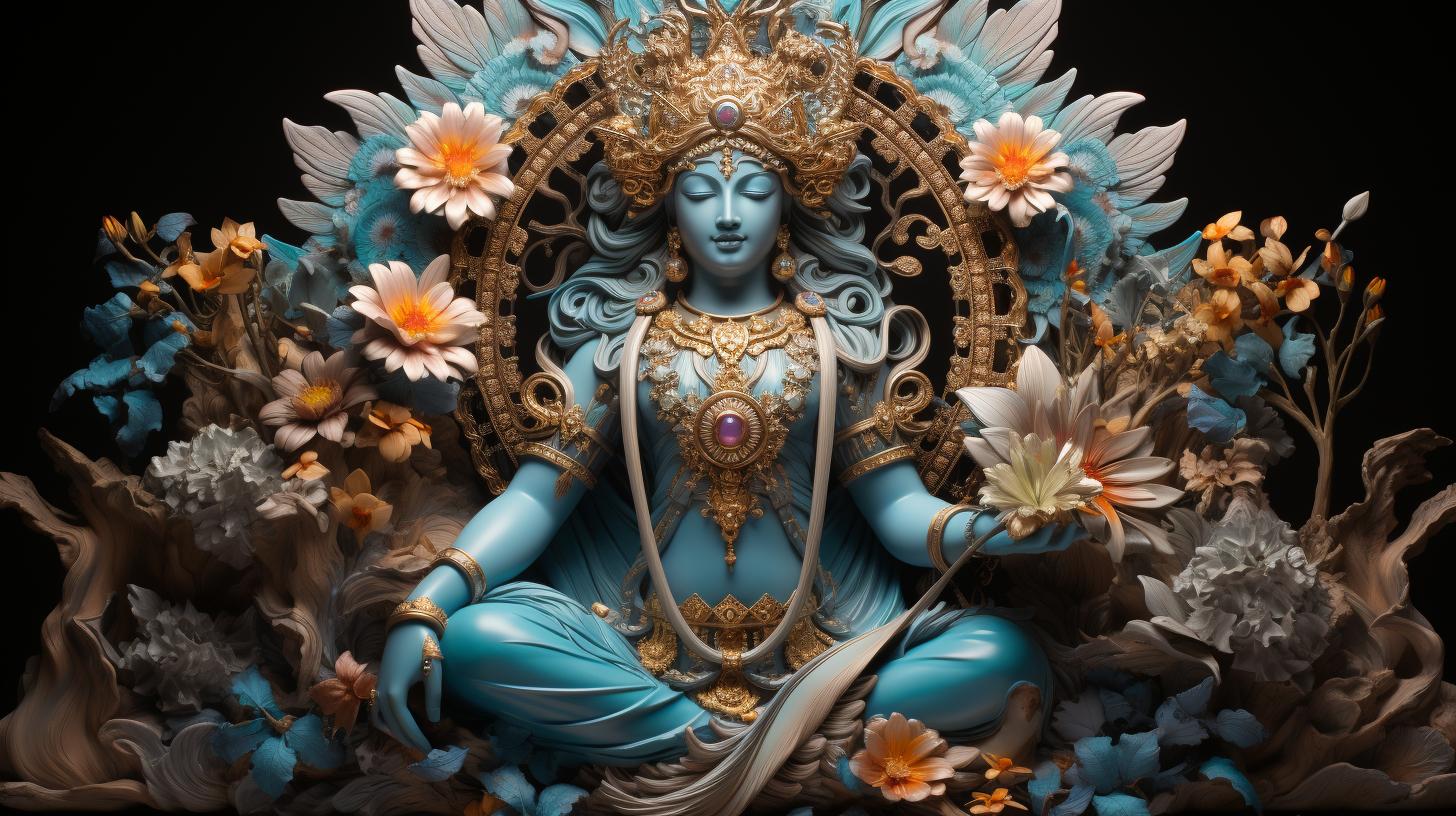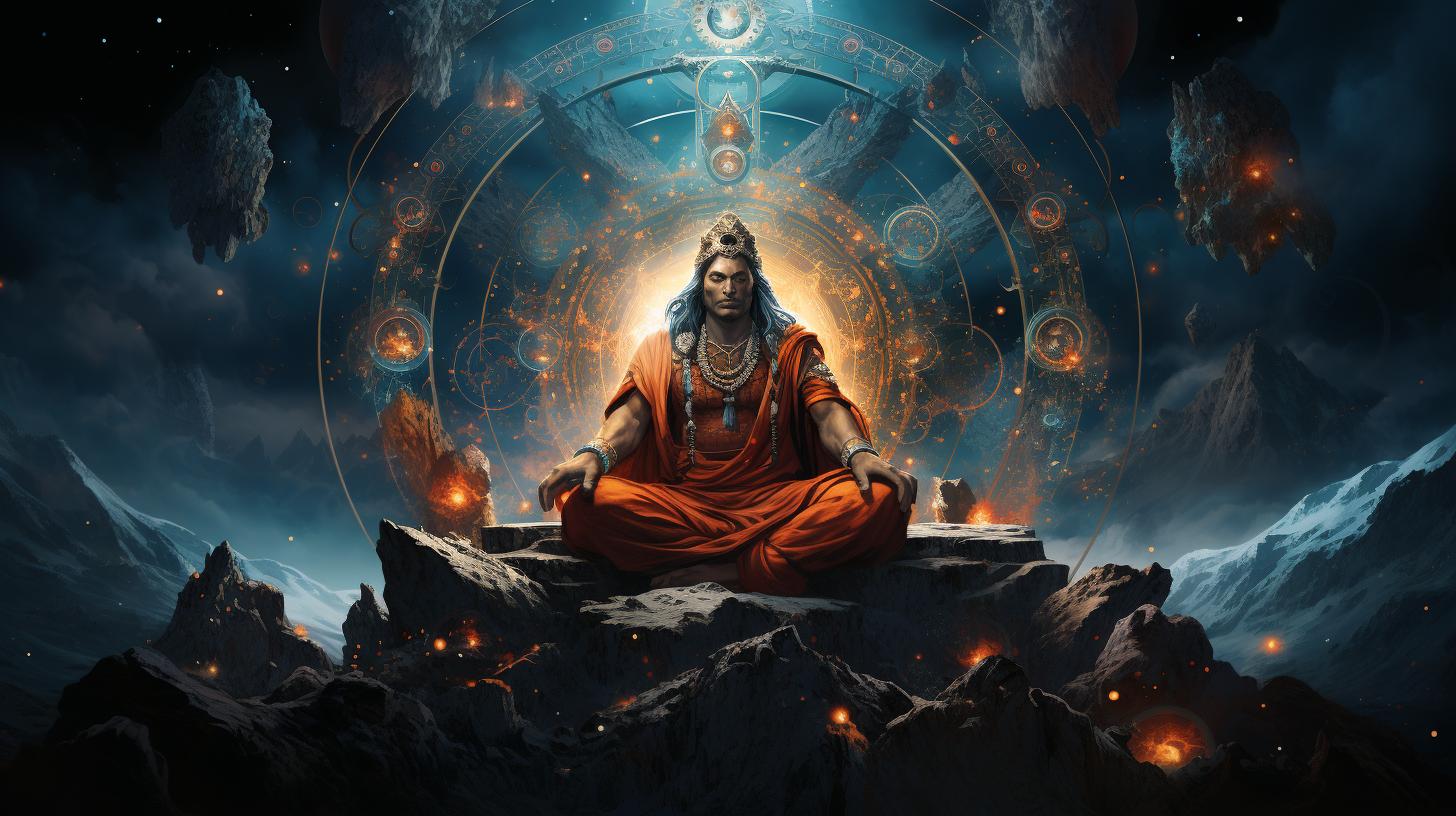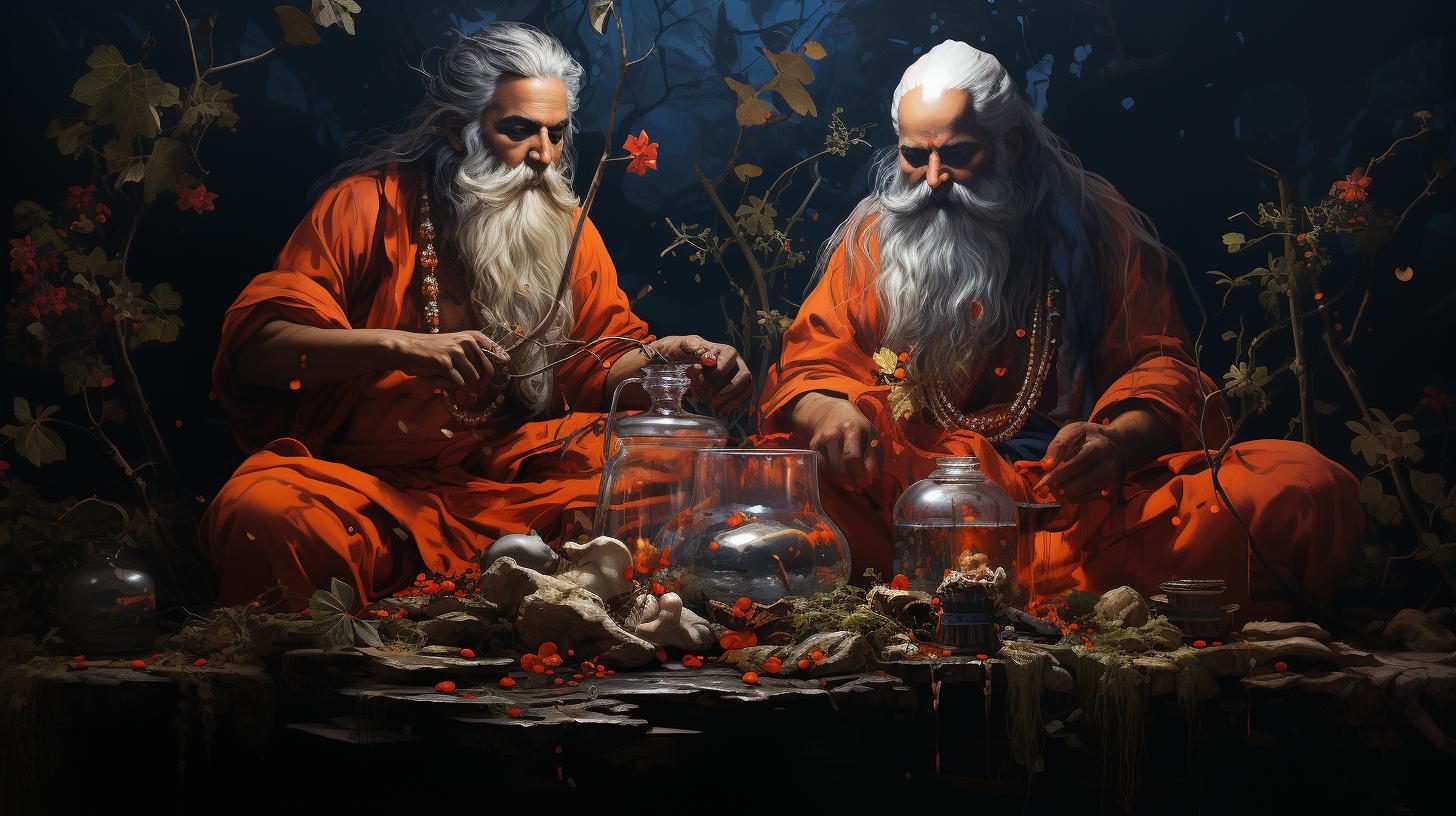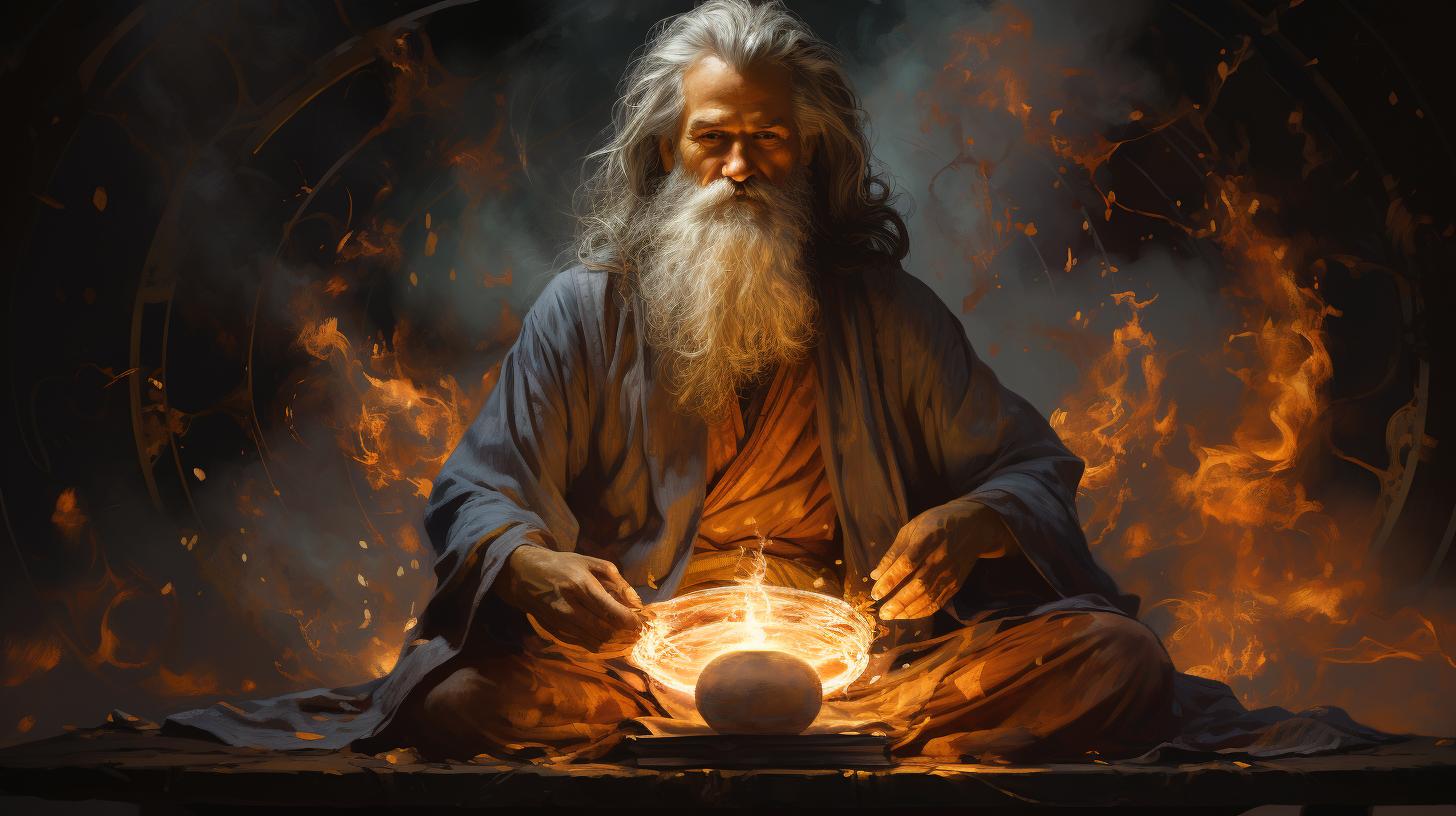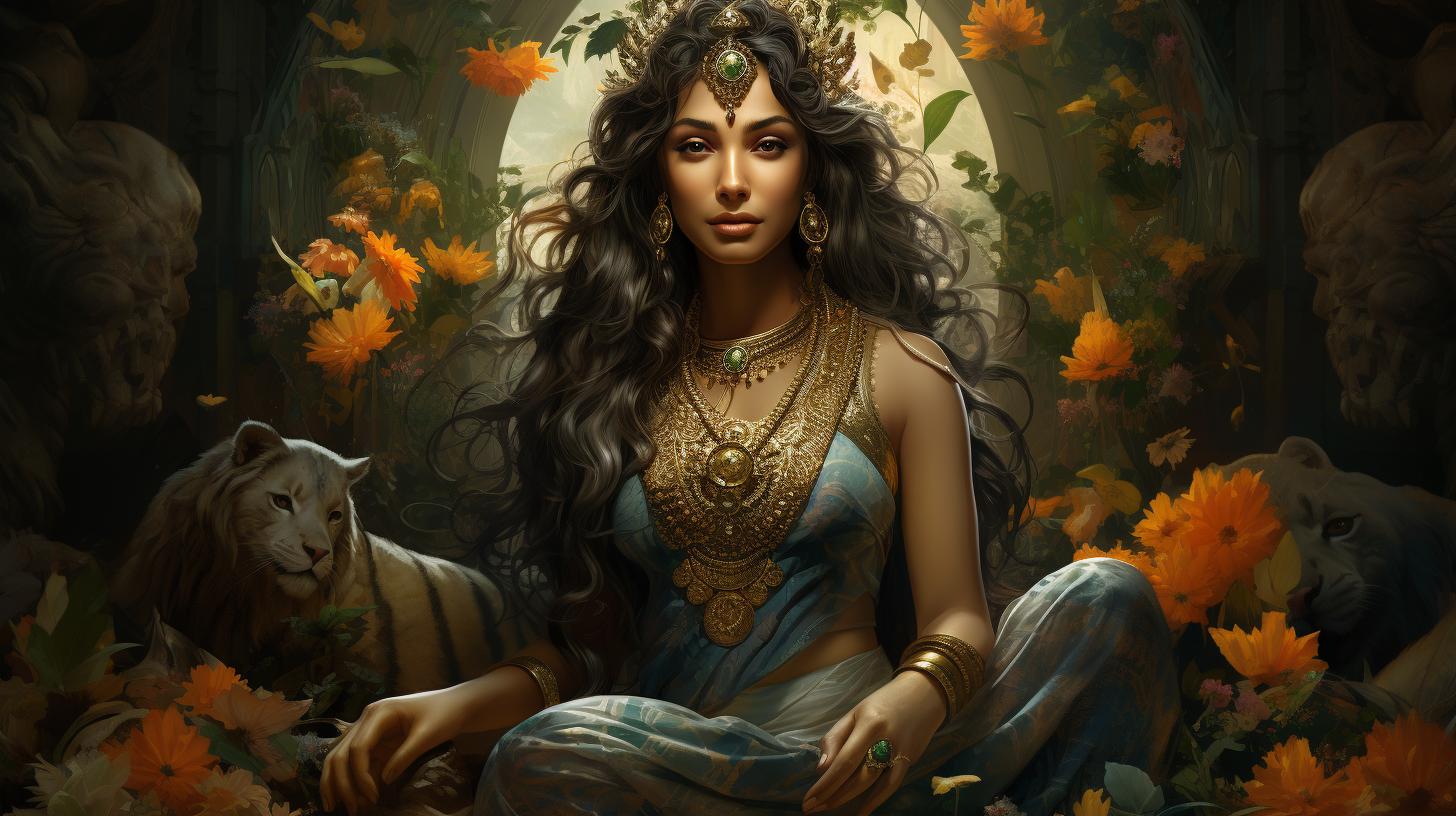Ayyappan God: Exploring the Deity’s Significance and Legends
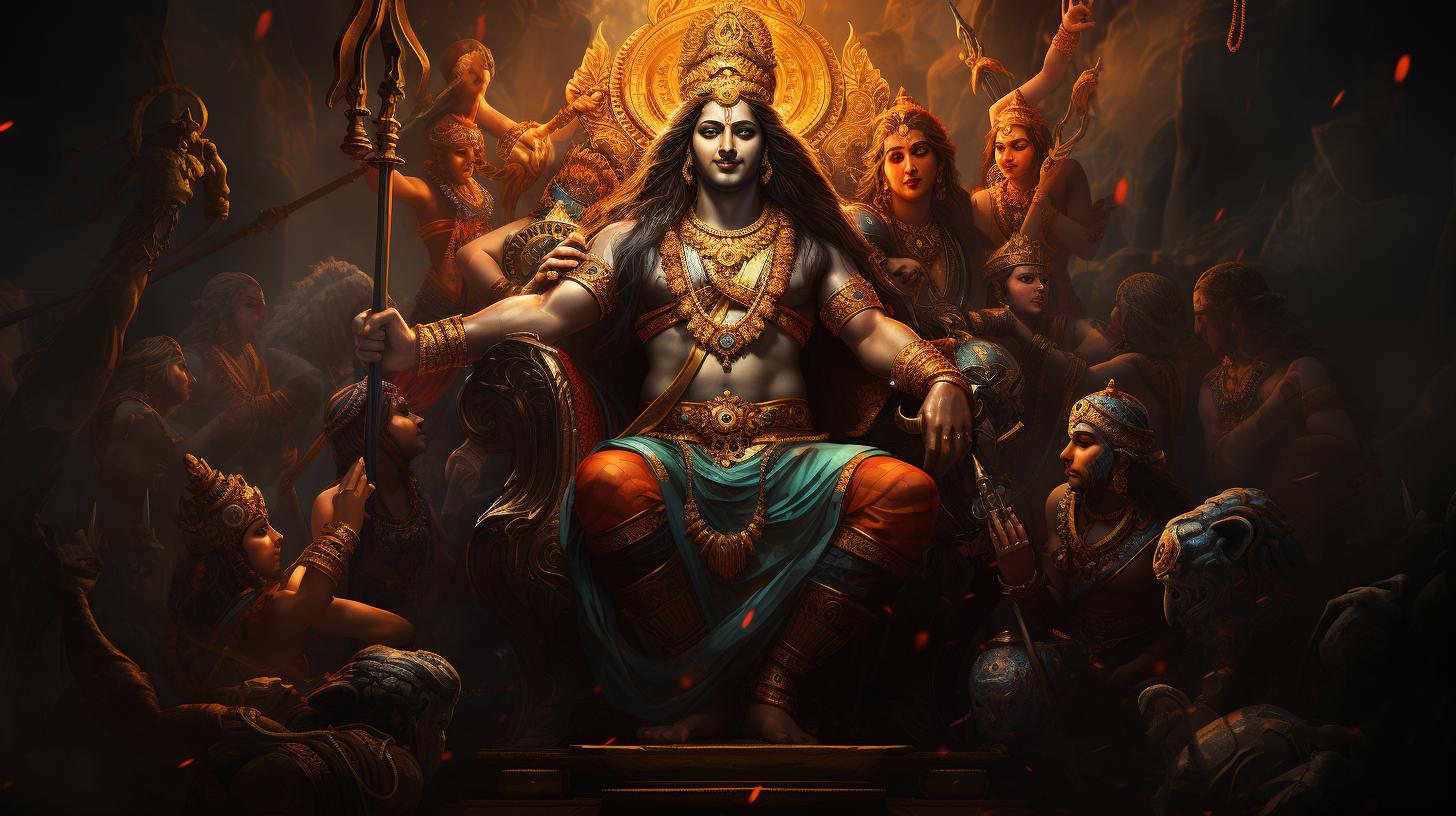
Ayyappan god is a revered Hindu deity popular in southern India. Also known as Manikandan, he is considered the embodiment of truth and righteousness, invoked to defeat evil. This deity’s legend includes his birth as the son of Harihara (a union of Vishnu and Shiva), his upbringing by a noble couple, and his transformation into a warrior yogi.
Ayyappan’s prominence is reflected in his depiction as a celibate deity practicing yoga and riding a tigress. Sabarimala temple in Kerala is a notable pilgrimage site dedicated to Ayyappan, attracting millions of devotees annually.
Ayyappan’s influence transcends religious boundaries, respected by various communities in Kerala.
The Legend of Ayyappan god
Ayyappan god has a captivating legend that highlights his divine birth, extraordinary powers, transformation into a warrior yogi, and his mission to vanquish the evil demon Mahishi.
The birth and divine powers of Ayyappan
Ayyappan, born with the combined powers of Shiva and Vishnu, emerged as a powerful deity destined to confront and defeat the wicked Mahishi.
His birth was shrouded in divine mystery, and his divine lineage as the son of Harihara (the fusion of Shiva and Vishnu) bestowed upon him exceptional abilities.
Ayyappan’s upbringing and transformation into a warrior yogi
Raised by a childless royal couple, Ayyappan grew up to be a celibate deity of unparalleled beauty.
He devoted himself to practicing yoga, symbolizing his disciplined and ascetic lifestyle. As he matured, his spiritual journey transformed him into a mighty warrior yogi, dedicated to upholding ethical values and righteousness.
Ayyappan’s mission to defeat the evil demon Mahishi
A pivotal aspect of Ayyappan’s legend revolves around his mission to subdue and eliminate the malevolent demoness Mahishi. Endowed with courage, valor, and divine powers, he embarked on a quest to restore peace and righteousness by vanquishing Mahishi and bringing an end to her reign of terror.
This captivating legend of Ayyappan god encompasses his birth, upbringing, and divine mission, painting a vivid picture of his journey as a warrior yogi and his commitment to eradicating evil forces.
Worshiping Lord Ayyappan
Lord Ayyappan is adored and revered through various rituals and practices in Ayyappan temples. These sacred places serve as centers of devotion for countless followers. Let’s delve into the significance of these rituals, the pilgrimage to the Sabarimala temple, and the guidelines and restrictions that devotees must adhere to.
Rituals and practices in Ayyappan temples
Ayyappan devotees engage in a range of rituals to express their devotion and seek blessings. These rituals often include offering prayers, lighting lamps, performing aarti (ritual of waving a lamp), and singing bhajans (devotional songs).
The priests play a crucial role in conducting these rituals, ensuring their sanctity and adherence to traditional customs. Devotees participate wholeheartedly, immersing themselves in the divine atmosphere of the temple.
Significance of the pilgrimage to Sabarimala temple
The Sabarimala temple holds immense importance for Ayyappan devotees, as it is believed to be the place where Lord Ayyappan meditated. The pilgrimage to Sabarimala, known as “Sabarimala yatra,” attracts millions of devotees annually.
Embarking on this sacred journey is considered an act of devotion and penance. Devotees undertake a challenging trek through dense forests and steep hills, observing strict fasting and penance along the way.
The yatra culminates in the darshan (viewing) of Lord Ayyappan’s idol at the temple, bringing immense spiritual fulfillment to the pilgrims.
Guidelines and restrictions for Ayyappan devotees
- Restricted entry: The pilgrimage to Sabarimala is traditionally open to all, excluding women of reproductive age. This practice is rooted in the belief that Lord Ayyappan is in a state of celibacy and should not be disturbed by the presence of women who could be menstruating or capable of bearing children.
- Observance of vratham: Devotees who plan to undertake the Sabarimala pilgrimage must observe a vratham (austerities) for a specified period.
This includes abstaining from non-vegetarian food, alcohol, tobacco, and engaging in sexual activities.
- Wearing of mala: Devotees wear a special necklace called “mala” during their pilgrimage as a symbol of their devotion and commitment.
This mala typically consists of rudraksha beads and is believed to have spiritual significance.
- Strict discipline: Ayyappan devotees are expected to adhere to strict discipline during the pilgrimage, maintaining cleanliness, controlling their thoughts, and practicing mindfulness.
It is a time of introspection and self-control, focusing on the spiritual journey towards Lord Ayyappan.
The worship of Lord Ayyappan through these rituals, the Sabarimala pilgrimage, and the observance of various guidelines and restrictions allows devotees to deepen their connection with the divine and experience a profound sense of spiritual fulfillment.
Ayyappan’s Connection with Hindu Deities
The divine lineage of Ayyappan is traced back to his parentage as the son of Harihara, a divine union of Lord Vishnu and Lord Shiva. This unique lineage symbolizes the harmonious coexistence of two major deities from the Hindu pantheon.
Ayyappan’s Relationship with Shiva and Vishnu
Ayyappan holds a special place in the hearts of devotees due to his strong association with both Lord Shiva and Lord Vishnu. As the son of Harihara, he embodies the essence and qualities of both deities.
This connection showcases the unity and interconnectedness of various aspects of divine consciousness.
The relationship between Ayyappan and Shiva is significant as Shiva is considered the ultimate source of creation and destruction.
Ayyappan inherits his warrior spirit and fierce determination from Shiva, enabling him to combat evil forces with great courage.
Similarly, Ayyappan’s association with Vishnu signifies his embodiment of righteousness and compassion.
Vishnu represents the preservation and sustenance of the universe, and Ayyappan, as his son, upholds these principles in his mission to eliminate evil and uphold dharma.
Representations of Ayyappan in Hindu Scriptures
Ayyappan’s presence and significance can be found in various Hindu scriptures and legends.
The Puranas, ancient Hindu texts, contain references to his birth, divine powers, and heroic exploits. The stories of his encounters with demons and his eventual victory over them serve as metaphors for the triumph of good over evil in the human soul.
In the Bhagavata Purana and other scriptures, Ayyappan is revered as a divine figure who manifests to protect and guide humanity during challenging times. His representation as a celibate deity practicing yoga and wearing a bell around his neck symbolizes his unwavering focus on spiritual growth and inner transformation.
Overall, Ayyappan’s connection with Hindu deities reflects the multifaceted nature of divinity and highlights the universal values of righteousness, courage, and compassion that he embodies.
- Ayyappan’s divine lineage as the son of Harihara
- Ayyappan’s relationship with Shiva and Vishnu
- Representations of Ayyappan in Hindu scriptures
Ayyappan god in Indian Culture
Ayyappan god holds a significant place in South Indian traditions and customs, influencing various aspects of the culture.
His revered presence has shaped religious practices, festivities, and devotion among the people.
Ayyappan’s influence on South Indian traditions and customs
Ayyappan’s influence can be witnessed in numerous aspects of South Indian traditions and customs. His teachings and principles form a guiding force for the ethical conduct of individuals within society. His celibacy, commitment to truth, and warrior yogi persona serve as ideals to be emulated by devotees.
Ayyappan’s influence extends beyond religious boundaries, permeating the fabric of everyday life.
Devotion to Ayyappan among different religious communities
Ayyappan’s divine presence transcends religious divisions, garnering devotion and respect from diverse communities in Kerala. Muslims and Christians also hold high regard for Ayyappan, participating in religious activities associated with him.
This harmonious acceptance highlights the inclusive nature of Ayyappan’s teachings, fostering unity among people from various religious backgrounds.
Festivals and celebrations dedicated to Ayyappan god
Ayyappan’s divine glory is celebrated through vibrant festivals and joyous celebrations in South India. The annual Makaravilakku festival at the Sabarimala temple is a grand event that draws millions of pilgrims, where they engage in rigorous rituals, offer prayers, and immerse themselves in the divine ambiance.
Other festivals, such as Mandalapooja and Thaipooyam, also commemorate Ayyappan’s divine presence and attract devotees from far and wide.
- Makaravilakku: The grand festival at the Sabarimala temple, attracting millions of pilgrims annually.
- Mandalapooja: Ayyappan devotees engage in various rituals and prayers during the 41-day Mandalam season.
- Thaipooyam: Celebrated in different Ayyappan temples, devotees participate in processions and perform traditional rituals.
Ayyappan god’s influence on South Indian traditions, devotion among different religious communities, and the grand celebrations dedicated to him showcase his profound impact on Indian culture.
Contemporary Relevance of Ayyappan god
The cult of Ayyappan god carries immense significance in modern times, as his teachings and principles continue to inspire and guide individuals in their spiritual journeys.
Ayyappan’s Teachings and Principles in Modern Times
Ayyappan’s teachings resonate with the challenges and dilemmas faced by people in contemporary society.
His emphasis on truth, righteousness, and ethical living offers invaluable guidance for navigating the complexities of the modern world.
By promoting values such as compassion, self-discipline, and selflessness, Ayyappan encourages individuals to cultivate a sense of inner harmony and contribute positively to society.
His teachings inspire devotees to lead meaningful lives centered around spiritual growth and self-improvement.
Ayyappan’s Role in Promoting Ethical and Dharmic Living
Ayyappan’s role as a guardian of righteousness extends beyond religious boundaries. His principles promote the importance of moral conduct, integrity, and justice, serving as a beacon of ethical living in contemporary times.
Through adherence to dharma, individuals are encouraged to make responsible choices, respect others, and uphold social harmony. Ayyappan’s teachings provide a moral compass that guides individuals towards leading lives grounded in integrity and ethical decision-making.
Ayyappan’s Impact on the Spiritual Lives of Devotees
Devotion to Ayyappan god has a profound impact on the spiritual lives of his devotees. The practice of worshiping Ayyappan and following his teachings fosters a deep sense of connection with the divine and facilitates personal transformation.
Devotees find solace, inspiration, and strength through their relationship with Ayyappan, experiencing spiritual growth and a sense of inner peace. The rituals, pilgrimages, and celebrations associated with Ayyappan provide devotees with opportunities for communal worship and spiritual communion.
- Ayyappan’s teachings guide individuals towards leading ethical lives.
- Ayyappan emphasizes values such as compassion and self-discipline.
- Devotion to Ayyappan inspires spiritual growth and inner peace.
- By adhering to dharma, individuals contribute to social harmony.
Exploring Ayyappan Temples and Sacred Sites
Embark on a spiritual journey to explore the enchanting Ayyappan temples and sacred sites, delving deeper into the realm of devotion and reverence towards this revered deity.
Sabarimala temple: The most renowned shrine of Ayyappan
At the pinnacle of Ayyappan worship stands the legendary Sabarimala temple, located in Kerala. This sacred pilgrimage site attracts millions of devotees annually, seeking solace and blessings from Ayyappan. Nestled amidst the lush Western Ghats, the temple is surrounded by breathtaking natural beauty, amplifying the spiritual experience for pilgrims.
Other significant Ayyappan temples in India
While Sabarimala holds primacy, numerous other Ayyappan temples are scattered across the Indian subcontinent. Each temple holds its own unique charm and architectural marvels. Temples like Kulathupuzha in Kerala, Ayyappan Kovil in Tamil Nadu, and Aryankavu in Kerala are revered sites where devotees congregate to offer their prayers and seek blessings from the divine.
Unique features and architectural styles of Ayyappan temples
Ayyappan temples exhibit distinct architectural styles, reflecting the rich cultural heritage of the region. Intricate carvings, vibrant murals, and elaborate gopurams (temple towers) adorn these sacred structures. The fusion of Dravidian and Kerala architectural elements creates a captivating ambiance, evoking a sense of serenity and devotion in the hearts of the faithful.
Visiting these Ayyappan temples and sacred sites allows one to immerse themselves in the aura of devotion and experience the spiritual energy that emanates from centuries of reverence for Ayyappan, the embodiment of truth and righteousness.
.












